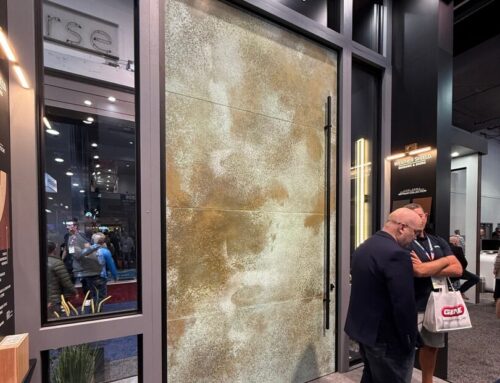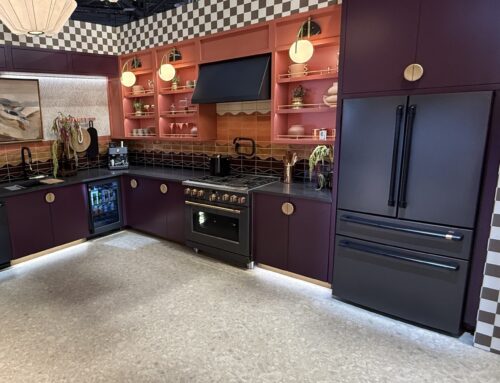Harnessing Lifestyle Marketing Opportunities for Building Products Manufacturers
October 15, 2024
Harnessing Lifestyle Marketing Opportunities for Building Products Manufacturers
Building products manufacturers often focus on the technical aspects of their offerings —durability, efficiency, safety, and compliance. While these features are undoubtedly a priority the home construction landscape continues to evolve, and so too are consumer expectations. Today’s buyers aren’t just concerned with the nuts and bolts of a structure; they want their homes to reflect their identities, values, and lifestyles.
For building products manufacturers, this shift represents an exciting opportunity to position products as part of a larger lifestyle narrative. By embracing lifestyle marketing, manufacturers can not only showcase the utility of their products but also highlight how these products fit into the modern consumer’s life.
Connect Emotionally with Your Audience
Consumers today are making decisions based on emotion and identity as much as function. Homeowners want to feel connected to the products that make up their living spaces, from energy-efficient windows to high-quality flooring. Lifestyle marketing allows manufacturers to speak directly to these desires with their own unique décor preferences.
For example, instead of solely emphasizing the technical benefits of your insulation materials, a campaign can highlight how they contribute to a comfortable, energy-efficient home where families can enjoy peace and relaxation. By framing your product in the context of how it makes people feel, you transform a simple purchase into a meaningful, emotional investment.
Through lifestyle marketing, manufacturers can create a more personal connection with contractors, architects, and homeowners, positioning their products as essential elements in building not just a home, but a way of life.
Highlight Customization and Personalization
Homeowners want products that reflect their unique tastes and preferences. Building products manufacturers can leverage this trend by offering customizable solutions that cater to different lifestyles. For example, a manufacturer of home exterior materials might offer a range of colors and finishes that allow homeowners to match the facade to their desired aesthetic, whether it’s rustic, modern, or traditional.
Customization doesn’t just apply to appearance—it can also relate to performance. Manufacturers can market their products as versatile solutions for specific lifestyle needs. For instance, a company that produces windows could emphasize how certain products are designed for maximizing natural light in wellness-focused homes or how soundproofing options provide peace and tranquility for urban dwellers. By aligning product offerings with specific lifestyle needs, manufacturers can tap into a deeper connection with the end user.
Embrace Sustainability as a Lifestyle
Sustainability is no longer just a trend; it’s a lifestyle choice that many consumers are making, especially younger generations. Homebuyers and contractors alike are seeking environmentally friendly materials that reduce the home’s carbon footprint while providing long-term benefits.
As a building products manufacturer, this is an opportunity to frame your eco-friendly products as essential for sustainable living. Highlight how your products—whether they’re made from recycled materials, designed for energy efficiency, or have low environmental impact—contribute to a greener, healthier lifestyle. Use lifestyle marketing to paint a picture of the future homeowner who cares about both their family’s comfort and the planet’s well-being.
Imagine showcasing solar-compatible roofing or eco-friendly insulation as part of a broader commitment to sustainable living. By aligning with values such as environmental stewardship, you position your products as indispensable for the growing market of eco-conscious consumers and contractors.
Leverage Digital Storytelling
Lifestyle marketing thrives in the digital realm, where storytelling is key to making emotional connections with buyers. As a manufacturer, you can harness the power of digital storytelling to bring your products to life.
Use immersive digital tools like 3D visualizations, interactive product demos, and virtual installations to show potential buyers exactly how your products will look and feel in their homes. For instance, manufacturers of smart home systems can create interactive content that demonstrates how their products enhance daily life, from controlling lighting and temperature to increasing security—all at the homeowner’s fingertips.
Furthermore, social media platforms such as Instagram and Pinterest offer fantastic opportunities to showcase how your building products contribute to specific lifestyle outcomes. Visual content showing your products in beautifully designed spaces can inspire homeowners, contractors, and architects to imagine how they can incorporate your solutions into their projects.
Wellness-Centric Products for Health-Focused Homes
Wellness is a growing priority for homebuyers, especially in the wake of the global pandemic. This shift offers a unique opportunity for manufacturers to position their products as contributors to health and well-being.
Building products that promote better indoor air quality, soundproofing materials for quieter, more peaceful environments, and energy-efficient products that create comfortable indoor climates are all key components of the wellness lifestyle.
Market these features as part of a holistic approach to homebuilding—focusing on how your products create not just structures, but sanctuaries that promote physical and mental health.
Conclusion
For building products manufacturers, lifestyle marketing is a powerful tool to engage with today’s more discerning and values-driven consumers. By focusing on emotional connections, customization, sustainability, digital storytelling, and wellness, manufacturers can position their products as essential components of a home that enhances a family’s lifestyle and well-being. In a competitive market, those who embrace this approach will stand out, offering more than just building solutions—they’ll offer a way of life.
As Draper DNA continues to set a precedence for success in building product manufacturers, and stays on top of all things trending, it has decided to pair with Abby Leigh Studio to introduce lifestyle marketing to building products manufacturers and their customers.
As trends in creating meaningful, smart and strategic partnership opportunities for continue through the end of the year and moving vastly into 2025, DNA & The Studio have paired together to introduce lifestyle marketing to building products manufacturers and their customers.
Interested in giving it a shot?





